
Brandy Clark (with L-R, Miles Aubrey and Vanessa McGowan) performs at City Winery in Boston on January 28, 2018
I had my inaugural City Winery experience on a cool, but surprisingly dry, Sunday evening in late January. The chain venue, which has successful outposts in New York, Chicago, and Nashville and just opened here in Boston in early December, mixes an urban winery with a full-service restaurant and tantalizing live music.
All 310 seats at their One Canal St location, just steps from the Government Center Garage with sweeping views of the Lenny Zakim Bridge, were adorned with the crisp cloth napkins and sparkling silverware of an establishment still in its infancy. The service, from the management to the wait staff, had the execution of a well-oiled machine fully prepared to report for duty.
In a venue of this size, with grouped seating that decreases in price the further away you sit from the stage, you’re all but guaranteed an exceptional viewing and listening experience. The owners pride themselves on the first-rate acoustics and strict policy that you remain quiet and respectful during the show.
I had no idea when selecting seats at a front row table, I would be so close to the stage you could rest your elbow on the edge. Such proximity to the action does lead to “concert neck,” a term coined by country music journalist Juli Thanki to describe the sourness from extended time with your head in an unnatural position. Thanki likes to say pain is totally worth it, and I have to agree, especially when the live entertainment is Brandy Clark and Angaleena Presley.
I always knew that City Winery had the potential to bring blockbuster shows to Boston, but I didn’t know they would strike gold this quickly. This was Clark’s first headlining show in the city, after multiple supporting gigs with Jennifer Nettles, and the first time I’d ever heard of Presley playing around these parts in any solo capacity.
Clark flawlessly executed a tightly focused set segmented thematically by her clever and blunt perspectives on substance abuse and revenge. Her richly drawn character sketches came alive with minimalist accompaniment that accentuated her wit and candor while highlighting her silky twang.
She began unassumingly with the one-two-punch of “Hold My Hand” and “Love Will Go To Hell” before undertaking the risky move of gifting the audience a new song, “Favorite Lie,” which I thoroughly enjoyed. Clark unveiled the origins of “The Day She Got Divorced,” which came to fruition during a phone call between Clark and Shane McAnally concerning a writing session with Mark D. Sanders and, of all people, Ms. Presley herself. The session ended by mid-afternoon when Sanders asked Presley how she planned to spend the remainder of her day. She quipped, “well, I got divorced this morning.”
The tight segments from which Clark split her set began with substance abuse, which lasted a healthy portion of the evening. She began with “Get High” and turned in excellent readings of “Drinkin,’ Smokin,’ Cheatin,’” “Take A Little Pill” and to my surprise, “Hungover.” She sprinkled in “When I Get to Drinkin’” and “You’re Drunk” to round it out.
The revenge portion of the evening was more slight but no more impactful. She followed “Daughter” with “Stripes” and promptly put every no-good man in his place. Clark gave a shoutout to our local wonder kid, Lori McKenna, and played their single-mom anthem “Three Kids No Husband.” “Big Day In A Small Town” and “Girl Next Door” were highlights earlier in the evening.
Clark purposefully surprised with the encore, beginning with a request by a group of female super fans who had followed her to attend each of the four Northeast stops she played in four days (Clark went from Connecticut to New York back to Connecticut and finally, Boston). They wanted to hear her sing a particular song by her idol, Patty Loveless she had obsessively tried learning on a newly-purchased electric guitar while it was climbing the charts. Her efforts in learning “Blame It On Your Heart” were as unsuccessful as her mastery in singing it were successful. Clark finished with another new song, that I instantly loved, entitled “Apologies” and concluded with “Pray to Jesus.”
Clark’s set was everything one would expect it to be and the accompaniment — Miles Aubrey on Guitar and Vanessa McGowan on Upright Bass — allowed the songs to shine without sacrificing flavor. I found Clark’s song selection, while perfectly executed, to be lacking in diversity, begging for a third course of “what else I can do” songs such as “You Can Come Over,” What’ll Keep Me Out of Heaven” and the one I kept waiting for all night — “Since You’ve Gone to Heaven.” Her ballads are a killer illustration of her artistry and I wish she had expanded her set to show them off.
Presley’s brisk opening set was a whirlwind tour of her four albums. Her candor, never mind her throwback hairstyle and leopard-print top, stole the evening while her southern charm had everyone in the palm of her hand. Her songs, though, spoke for themselves, with the audience in respective stitches with each turn-of-phrase.
She opened with “American Middle Class” and “Dreams Don’t Come True,” a shining example in a long list of songs about the dream of making it in music city. She also admitted to inviting the already-committed Lori McKenna to the show, in advance of playing “Bless Your Heart,” which she called the enthuses of a song McKenna would write.
Presley dedicated “Knocked Up” to her first husband, who she admitted did nothing more than make her a mother, and joked about her upbringing in Beauty, Kentucky. She intertwined her work with Pistol Annies so easily with her solo stuff, I all but forgot “Unhappily Married” and “Lemon Drop” weren’t on her solo releases.

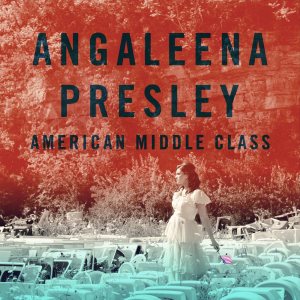
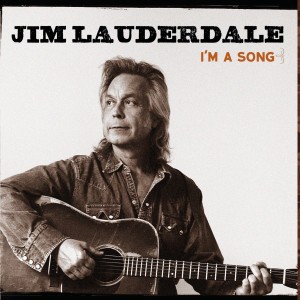
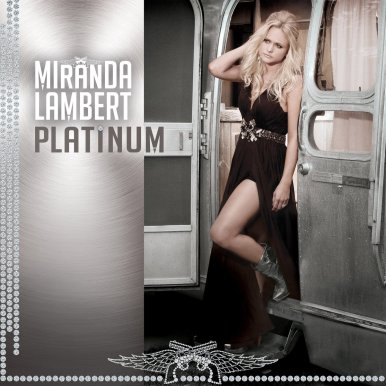




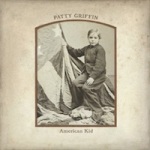






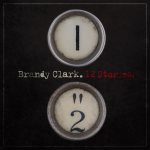















Three more names cemented in bronze: the class of 2012
March 7, 2012The importance of this commemoration knows no bounds as the past and present collide to bestow an honor upon three worthy individuals whose contributions have been revolutionary.
This recognition, which concludes with a medallion ceremony later in the year, elevates greatness, yet sparks fierce debate among those who object to this honor coming too soon or far too late.
But one ideal will always rise victor – the highest professional honor in country music is induction into the Hall of Fame. And in 2012, that prestigious mark of upmost respect shines a light on Hargus, “Pig” Robbins, Connie Smith, and Garth Brooks.
In three unique and different ways, each inductee has left a stamp on country music not likely to be erased with time. Through his paino-playing on iconic songs such as “Don’t It Make My Brown Eyes Blue” and “White Lightning,” Robbins has redefined the essence of the studio musician.
With “Once A Day,” a little tune pinned by Bill Anderson, Smith did the impossible – becoming the first female artist to log eight consecutive weeks at #1. That feat, accomplished more than forty years ago, has yet to be topped.
And Brooks took our notion of what a concert tour could be, turned it on its head, and ran with it.
Hargus “Pig” Robbins
Especially this day and age, with digital sales rendering the dust jacket obsolete, the ideal of the studio musican has nearly gone out the window. No longer do we care who backs up our favorite singer as long as said artist releases new music.
But the studio musician is the backbone of all music. Without session players, as they’re also called, albums would never be released. We need these professional musicians who can learn a song on a dime (often without sheet music, thanks Kix) and execute them flawlessly.
Robbins was one of those such people and arguably one of the best the genre has ever seen.
Connie Smith
At 70, Smith sounds better today than most female singers in the business. I was recently scanning the television channels when I came across The Marty Stuart Show on RFD-TV. A homage to all the great variety shows from the 60s and 70s, The Marty Stuart Show is a shining example for classic country music in a world in which country rock knows no bounds.
Marty’s guest that evening was none other than Smith, his wife. For half an hour she took to the stage and sang from Heartaches. She performed more than half of the album and even brought her three daughters on stage for “Take My Hand.”
The show can be “hicky” at times, but Smith’s voice shined loud and clear. It was so nice to have an outlet from which to see her perform and I knew I was witnessing something special.
My first vivid memory of Smith came in 1997 when I watched her perform on the Grand Ole Opry from my grandparent’s living room. I don’t remember what she sang, but I remember it airing after she married Stuart. Being young and naive, I didn’t understand what I was watching and thought she looked “tough.”
The next time I remember paying attention to her was during a duet of “Once A Day” live on the Opry with Martina McBride in 2005. That performance is on YouTube and very good, although Smith steals the show (as she should have).
Like Jean Shepard last year, Smith’s induction is long overdue. Her importance to country music may be quiet in comparison to the likes of Loretta Lynn, Tammy Wynette, and Dolly Parton, but she belongs with them in a class of her own.
With a better understanding of her importance, and a deep love of Heartaches, I now can say I’m a bonafide fan.
Garth Brooks
I remember, once, not “getting” him. This idea of his popularity being something overblown. I don’t know when I woke up and got a clue but it came pretty fast.
In 1997, when I was also first learning about Smith, my grandfather turned 75. So my mom had an idea – I would sing “Much Too Young (To Feel This Damn Old)” at the party. I’m not a singer or guitar player, so I did my best to pull it off. I remember having to learn the song for weeks before hand and feeling pretty cool that I could use the word “damn.” It was a special moment and I can still see myself sitting on the stool in the middle of the dance floor.
That same year, like the rest of the world, I tuned into the famous Central Park concert. Being young, I really had no idea the magnitude of what that show really symbolized for country music. I remember how happy everyone was that Garth was sticking only to old material.
Watching from my grandfather’s basement, I can see clear as day, his inability to get the VCR to work so we could tape the show. I was mad but it was just so cool to be able to watch it. Funny thing, when he brought Billy Joel on to sing “New York State of Mind” I had never heard of him (or at least really knew who he was). I always thought he should’ve been wearing a cowboy hat.
Apart from his concerts, yes I also saw his 1998 show from Ireland, and a concert of my own in 1996, I have vivid memories of Brooks’ music. More than any other artist, he was a true marketing genius.
Getting a new Garth Brooks album was always a treat because there would be multiple covers and “first editions” to choose from. I have first edition copies of Sevens, Double Live, The Magic of Christmas, and Scarecrow.
I remember listening to a radio show, in 1998, when they played every cut off of The Limited Series with commentary from Brooks. It was so cool, at that time, to think he was releasing a boxed set of his material with one new cut on each album.
I also rushed out and bought everything he had for sale during his “Wal-Mart Only” years. Sure, you could say I’m a sad sap for buying into all this, but for some reason you had to – it’s Garth Brooks. (Along those same principles – I also own In The Life of Chris Ganes).
In his day, Brooks had it all. The mammoth concert tours, hit singles, and everything in between. And with Trisha Yearwood he had the tabloid love affair we all love to speculate about (did they hook up in the 90s or not?).
But the truly remarkable aspect of Brooks’ career are the songs. It isn’t very often that an artist can back up their success with such memorable and iconic records. There isn’t a single superstar today – from Kenny Chesney, Carrie Underwood, and Taylor Swift, to Brad Paisley, Keith Urban, or Tim McGraw who can match Brooks song for song. His is music of substance, class, and grace.
For instance, on 9/11, I remember singing “The Dance” to myself on the way home from school. When I got home, the first song I turned to was “The Change.”
There isn’t anyone who can match him. I remember people would take the day off from school or work to stand in line at their local CD store on Garth Brooks release day. His albums were events.
But Brooks’ induction came so soon, ahead of the more deserving Randy Travis and Ricky Skaggs (who he singled out in his speech), because of one aspect – touring. His concerts were revolutionary for elevating the stage show to heights previously unknown in country music. Like his albums, his shows were happenings.
Before Brooks, you didn’t have fans rushing online at 10:00am to secure their seats to a show. Country artists may have seen sellouts aplenty, but never in places like the Staples Center and Madison Square Garden. He brought country music to a whole new level; one not surpassed until Chesney’s stadium shows in the 21st century. Brooks drew the blueprint that made the mammoth country shows we all go to today, possible.
All and all, If Brooks is anything, he’s his own man. He was the first to announce a retirement (via a silver covered Country Weekly cover in 2000) at the height of his fame, and remains the staunch holdout for a presence digitally. He doesn’t even have any vintage clips on YouTube.
But like any great artist, the songs will always live on. I was listening to my local country station just last week and what came on? None other than “If Tomorrow Never Comes.” Singing along to his first #1, it felt comfortable, right. Just like his entrance into the Hall of Fame.
Looking Ahead
As we look back at the legacy Robbins, Smith, and Brooks bring to the Hall, the debate over future inductees rages on. Brooks may have gotten in ahead of his time, but no one exemplifies the “90s boom” better and as the forefather of the country spectacle, he made the stadium shows of today doable.
But here’s my list of who should welcome the exit of winter’s chill in some upcoming March and allow us to have a celebration in their honor:
Modern Era Category (In order of importance):
Veteran Era Category (In order of importance):
Tags:Alan Jackson, Alison Krauss, Anne Murray, Brooks & Dunn, Clint Black, Connie Smith, David Allan Coe, Dwight Yoakam, Garth Brooks, Gene Watson, Hank Williams Jr, Hargus "Pig" Robbins, Jim Ed Brown, John Anderson, Johnny Paycheck, June Carter Cash, Kenny Rogers, Marty Stuart, Patty Loveless, Randy Travis, Ricky Skaggs, Ronnie Milsap, Rose Maddox, Tanya Tucker, The Browns, The Judds
Posted in Country Music, Country Music Hall of Fame Commentary | Leave a Comment »